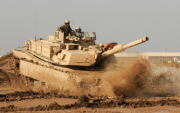|
bewbies posted:There were a litany of reasons ranging from leverage between tenuous allies to the domestic political landscape, but the real reason everyone agreed the surrenders had to be unconditional was that negotiating with fascists legitimized them. Thanks! Can you expand on the "tenuous allies" bit a little, please?
|
|
|
|

|
| # ? Apr 29, 2024 07:34 |
|
My wife bought me Unwomanly Face as a Valentine's Gift. I got three pages in, and wept at the woman who shared her marriage proposal from Berlin. I tend to not be emotional when reading about history, but something about it just wrecked me. It's an amazing book. E-Spell Gooder bulletsponge13 fucked around with this message at 04:45 on Jul 4, 2021 |
|
|
|
Koramei posted:I was over the line saying you were virtue signaling, sorry, but your quip about "Okinawa or Hiroshima" (and not the Philippines, China, Korea, Vietnam, Burma--I could go on) set me off a bit. Discussion of the atomic bombings gets way too much press for what I would frankly agree with Captain von Trapp is not actually that high on the list of the ills of even just WW2. I say this every time this discussion comes up these days but, well, the discussion plays out basically identically every time, so--the way it's, in modern America, gone to frame Imperial Japan as though they were the victims in the war has been incredibly damaging. No harm, no foul. I brought up Okinawa because it seemed like the most likely example for extrapolating alternatives to what actually happened. I don't think I can compare speculative alternatives and say what is 'best'. You're right that we can't ignore what was going on in the rest of Asia, much of which makes a lot of this sound even more trite. I'd be wrong to try and compare Okinawa to Hiroshima to Nanking, just as I would be to try and say which way is the 'best' to stop Imperial Japan at the latter end of WWII. It's important to know that it is definitely in nobody's interest aside from the LDP and ukyoku groups to paint Japan as a victim, but then again that's just another of the insane narratives you get stemming from the goddamn bomb. Not far off from my whole beef from the beginning, mind you! No hard feelings, and thank you for pointing that out.
|
|
|
|
bewbies posted:No one said this. What was said by several people is that the bomb was the best option out of a lot of ugly options. Which, at least in my opinion, is very true. Lots of people have made lots of great posts in these threads over the years discussing it (one was posted above already). Well, I was getting a bit hoarse at this point. Anyway I'll leave it be. I'm not saying it was or wasn't the best, I'm suggesting it demands more scrutiny than just a drive by, but as you said, the thread has that. I just had a twitchy nerve when I read something, which happens. Sorry if I got over my own head or seemed righteous about it. I'll do the responsible thing and go read more.
|
|
|
|
bewbies posted:It makes more sense to think of "unconditional surrender" conceptually as more like "dump your fascist governments and then we'll talk." The thing is, when you're talking about a fascist government, there is no "legal" means as such to get rid of them other than straight subjugation. To be fair *cough" your actual Fascist government in Italy...
|
|
|
|
Mystic Mongol posted:I can't accept this. If you're going to insist on killing hundreds of thousands of people so you can hold one man accountable for his crimes, why is it fine to throw your hands up and say "politics" after the fact? It suggests the lives of civilians mean less than political expediency, which... You're confusing the means and the goals; the goal is unconditional surrender; and as was mentioned this is basically a short hand for demanding the eradication of fascist militerist governments; or giving the allies occupation forces carte-blanche to do the next best thing. Once the Allies have accepted surrender and boots are on the ground enforcing that surrender and macArthur has the chance to weirdly be in the position to rebuild Japan's government from the ground up and I might add doing a not-bad job of it (shame they never became a US state, that'd be a wild alternate history) only then are the allies in a position to go "Actually it's useful for us for the Emperor to remain as-is because it will insure the occupation goes smoother". It's about negotiating and acting from a position of strength and a position that ultimately confers no legitimacy to the previous form of government. Plus it was useful to contain the spread of communism or a future resurgent fascism that might have occurred if a power vacuum similar to Post-WW1 Germany was allowed to exist by forcing the abdication of the Emperor and/or the abolition of the position.
|
|
|
|
Let's say that Japan refuses to surrender and the US is actually faced with doing a Home Islands invasion. How long does Allied domestic support for the war hold out? I can readily imagine a scenario in which Japan gets the absolute stuffing beaten out of them and tens of millions of people throughout SEA die, but the Allies pull back from doing a full land invasion and settle for a long-term blockade or similar instead, just to limit casualties on their side. But I have no idea how bad war weariness was in 1945 or what plausible alternatives to a war of annihilation (of the Japanese government) there were.
|
|
|
|
TooMuchAbstraction posted:Let's say that Japan refuses to surrender and the US is actually faced with doing a Home Islands invasion. How long does Allied domestic support for the war hold out? I can readily imagine a scenario in which Japan gets the absolute stuffing beaten out of them and tens of millions of people throughout SEA die, but the Allies pull back from doing a full land invasion and settle for a long-term blockade or similar instead, just to limit casualties on their side. But I have no idea how bad war weariness was in 1945 or what plausible alternatives to a war of annihilation (of the Japanese government) there were. Soviets wouldve loved to request lend-lease amphibious equipment to do the work for US by early 1946 Im sure. USSR declaring war to Japan and starting their landgrab in SEA changes things radically. Historically this was after the bombs as a hail mary to get more winning out If the war, But had the invasion of japanese islands started Im sure Stalin wouldve been more than happy to start cutting pieces If the cake given the utensils; Red Army was just heavily lacking in anphibious landing equipment.
|
|
|
|
The war had already gotten to the point where the US was doing bombing runs on population centers (and so was everyone who had the capability), and a lot of money was being dumped into the ultimate bomb, so I have trouble seeing a scenario where the bomb doesn't get dropped. Not that it isn't bad to kill civilians, it just seems weird to look at the bombings in isolation as if most of these decisions hadn't already been made.
|
|
|
|
TooMuchAbstraction posted:Let's say that Japan refuses to surrender and the US is actually faced with doing a Home Islands invasion. How long does Allied domestic support for the war hold out? I can readily imagine a scenario in which Japan gets the absolute stuffing beaten out of them and tens of millions of people throughout SEA die, but the Allies pull back from doing a full land invasion and settle for a long-term blockade or similar instead, just to limit casualties on their side. But I have no idea how bad war weariness was in 1945 or what plausible alternatives to a war of annihilation (of the Japanese government) there were. Admittedly my fear in this counterfactual might be they skip your little qualification and make it a war of annihilation, period. God knows the anti-Japanese racism was bad enough already I could see frustration with a refusal to surrender boiling over into a full on conventional/chemical genocide bombing of every living Japanese person, they were almost there anyway before atomics even entered the picture. The real danger with war exhaustion is I don't see it becoming "we stop trying to beat the Japanese" but "we've had enough, just kill them all from the air and don't even bother asking them to surrender anymore, they're too evil/stupid to". Human history suggests very bad things can happen to groups that keep fighting past when the attackers consider things "done", like the sieged city that gets breached finally and keeps fighting.
|
|
|
|
Valtonen posted:Soviets wouldve loved to request lend-lease amphibious equipment to do the work for US by early 1946 Im sure. Bit of a nitpick here but the USSR entering the war against Japan was one of the promises made as far back as 1943 at Tehran and was reiterated at Yalta; planning and preparations for the invasion probably began in earnest as early as 1944 and accelerated in early 1945. It wasn't remotely a hail marry, but something the Allies had explicitly asked the Soviets to do as soon as Germany was defeated. This is like saying Bagration was in result of taking advantage of D-Day! The hail marry would have been continuing to invade Hokkaido if they had the logistical and transportation means to do so; if the war continued into 1946 then maybe that's possible as that would've given additional time to construct landing ships, barges and the like and the Japanese were probably concentrating their forces to oppose a landing from the south.
|
|
|
|
Were there any major advancements in European military technology and tactics between the adoption of the socket bayonet and the Napoleonic Wars? That timespan is around 100 years and to someone like me who's not very well-versed in that era of warfare, it kind of looks like nothing has changed during that time. Also are there any good english-language books on Operation Bagration?
|
|
|
Dreamsicle posted:Were there any major advancements in European military technology and tactics between the adoption of the socket bayonet and the Napoleonic Wars? That timespan is around 100 years and to someone like me who's not very well-versed in that era of warfare, it kind of looks like nothing has changed during that time. The Gribeauval System that standarised artillety pieces. Shrapnel shells. Congreeve rockets. Weather gage. Semaphore and the signal towers that used it. The Ambulance system with the first specialised carts designed to not slowly kill the wounded. Oh and (briefly) the Hot Air Balloon. Tactics wise, the Corp system. Many nations involved in general went through huge shake up and shake downs of how each of their armies were supplied, trained and fought through the whole era. SeanBeansShako fucked around with this message at 04:31 on Jul 4, 2021 |
|
|
|
|
TooMuchAbstraction posted:Let's say that Japan refuses to surrender and the US is actually faced with doing a Home Islands invasion. How long does Allied domestic support for the war hold out? I can readily imagine a scenario in which Japan gets the absolute stuffing beaten out of them and tens of millions of people throughout SEA die, but the Allies pull back from doing a full land invasion and settle for a long-term blockade or similar instead, just to limit casualties on their side. But I have no idea how bad war weariness was in 1945 or what plausible alternatives to a war of annihilation (of the Japanese government) there were. Japan would have collapsed a bit into the invasion because the major famine they were experiencing would unravel into societal collapse. The fears of armed civilians fighting to the death are pure orientalist fantasy, the real danger for the allies was just troopships getting kamikazed constantly.
|
|
|
|
Raenir Salazar posted:shame they never became a US state Sorry but that is a really weird way to phrase that. Dreamsicle posted:Were there any major advancements in European military technology and tactics between the adoption of the socket bayonet and the Napoleonic Wars? That timespan is around 100 years and to someone like me who's not very well-versed in that era of warfare, it kind of looks like nothing has changed during that time. Rifling is a big one, depending on how you define "between". Even through the American and French Revolutionary wars, most soldiers still used smoothbore muskets, with tactics based around massed fire due to their inaccuracy, but sharpshooters armed with rifles were decisive in several battles and skirmishes. By the early 1800s, organized rifle regiments formed a small part of modern armies, though they wouldn't become ubiquitous and fully replace the musket until midcentury, when improved designs transformed them from slow-firing specialty weapons to just as fast and easy to reload as a musket.
|
|
|
|
Slim Jim Pickens posted:Japan would have collapsed a bit into the invasion because the major famine they were experiencing would unravel into societal collapse. The fears of armed civilians fighting to the death are pure orientalist fantasy, the real danger for the allies was just troopships getting kamikazed constantly. That's a rather optimistic view given I think several comparable events. The role of child soldiers and anyone who could be made to bear arms in the final months of Nazi Germany, the Volksturm were near as dammit civilians thrust into trying to reverse the Allied attack, their society didn't collapse. The Siege of Leningrad, the Soviets in that city fought past the point of starvation and eating their own dead and their society did not collapse but every member of it contributed to fighting back the Germans and this went on from September of 1941 to January of 1943. An unknown but definitely in the thousands quantity of Japanese civilians committed suicide on Saipan rather than be captured by the Americans, this was out of a population of tens of thousands, thousands of others stayed with the Japanese soldiers and died to flamethrower and grenades as the US cleared dugouts. Soldiers on the islands fought and maintained at least a semblance of discipline well past the point starvation and futility on dozens of islands in the Pacific. I see absolutely no reason not to believe the Japanese as dedicated than the Germans or Russians were, not out of some Orientalist savage justification but because they didn't have the knowledge or alternate structures to know of any alternative, in addition to the fact of fighting to defend their home. Propaganda was widely believed that the US were marauding barbarians, most Japanese people had never met a foreigner, unlike a German who was far more likely to have met one of their European neighbours, the most likely context you had would be from a relation who moved to the west coast of the USA and I doubt that would be a rosy picture of the moral character of the American. So you likely believed what the government which was acting in the name of a divine figure said about the foreign invader at least to some degree, and it's not like you can vote them out of power, and they control the men with guns who might well shoot you if you don't fight. The Japanese had formed in April of 1945 the volunteer fighting force, an interesting name given it was empowered to conscript all men between 15 and 60 and all women between 17 and 40 and was putting them into service. If the stubbornness of the fighting over an island of no real importance is any guidance why so you think that the defence of the Japanese Home Islands would be any less stubborn? Would they all, or even a majority of them have fought to the death? No of course not, but many would have.
|
|
|
|
You can also sorta compare Germans fighting on the Western front compared to the Eastern front and probably extrapolate how the Japanese would have fought compared to how the German soldiers on the Eastern front in 1945 would have fought, especially around Berlin.
|
|
|
|
Polyakov posted:They did not want to have to invade Japan and had absolutely no way of knowing what was going on in Japanese governmental circles. By any logic Japan should have surrendered a dozen battles earlier, same with Germany, these were not rational regimes. I think attempting to end the war by any means neccesary is absolutely the best alternative that the Allies had and the atomic bombing was a major component of that. Just a minor point here, thanks to the bombing of the Japanese homeland, a lot of the landlines were out of commission and the Japanese had to communicate by radio - the encryption of which had already been broken, so the Americans weren't completely clueless as to what decisions the Japanese leadership was making. One thing that I've not seen mentioned is that the Japanese had plans in place to murder everyone in their POW camps if the fighting got close to them. And if they hadn't surrendered when they did, I believe the US was producing enough fissile material to produce about one new bomb per week, unless I'm misremembering. Is there a good study about the radicalization of the Japanese military? They pretty much conducted themselves by international standards in the Russo-Japanese war and WW1, how did they go from there to bayonet drills on live bodies?
|
|
|
|
feedmegin posted:Thats assuming a blockade when the actual plan was Operation Downfall, the amphibious invasion of Japan inch by inch. That would have killed God knows who many on both sides plus the aforementioned starvation and blockade etc. And Operation Starvation kicked off on March 27, 1945 with the first of tens of thousands of naval mines shutting down Japan's seaborne trade. Japan was a net importer of food, millions were on a course to starvation. Downfall wasn't going to end the war with the first invasion. The Olympic landings in November 1945 were "merely" the preliminary assault to seize air bases to support Coronet in March 1946. By then Japan wouldn't have much civilian population left, and the soldiers would be hungry. e. What Polyakov said. mllaneza fucked around with this message at 09:58 on Jul 4, 2021 |
|
|
|
Hannibal Rex posted:Is there a good study about the radicalization of the Japanese military? They pretty much conducted themselves by international standards in the Russo-Japanese war and WW1, how did they go from there to bayonet drills on live bodies? Interestingly enough, my college friend wrote for his final an essay on this topic, and as it turns out still exists in my hard drive on the cloud! Here's some the sources he used that seem relevant: Bergamini, David. Japan’s Imperial Conspiracy Chancellor, Christopher. “Japan in China.” Green, O. M. “Great Britain and Japan’s War on China.” Kennedy, Paul. The Rise and fall of the Great Powers Steinberg, John W. et.al., The Russo-Japanese War in Global Perspective: World War Zero The Staff of the American Council. “Economic Preparedness in China and Japan.” Paine, S. C. M., The Sino-Japanese War of 1894-1895: Perception, Power, and Primacy. Nimmo, William F., Stars and Stripes across the Pacific: The United States, Japan and Asia/Pacific Region Michael, Franz. “Japan’s “Special Interests” in China.” Pacific Affairs Beasley, W. G., The Rise of Modern Japan, 3rd Edition: Political, Economic, and Social Change since 1850 If you're interested I could ask him for permission to either post it or dm it to you. I could also try to reread it and summarize the key points.
|
|
|
|
IMO the Japanese leadership's insistence on retaining the Emperor and survival of the Imperial system (crucially alongside 'no war crimes tribunals for us') is an obviously thinly veiled attempt to get to end the war to end on 'status quo ante' with a few indemnity payments, fully intent on retaining military control of the country and on having another go at Empire when conditions looked right. And that was just wholly unrealistic. You can't launch the war that Japan did and conduct it in the way that Japan did, and then expect your opponents to see status quo ante as an acceptable outcome. e: I do think it's wrong to talk about the 'moral' or 'humane' bomb. It obviously wasn't. War is neither moral nor humane. But in the context of WW2, a conflict in which atrocities and crimes against humanity are perpetrated every single day by the instigators, I find it difficult to accept a moral framework in which Allied leaders are expected to do anything other than 'everything we can to win the war as quickly as possible'. Alchenar fucked around with this message at 11:05 on Jul 4, 2021 |
|
|
|
Hannibal Rex posted:Is there a good study about the radicalization of the Japanese military? They pretty much conducted themselves by international standards in the Russo-Japanese war and WW1, how did they go from there to bayonet drills on live bodies? I don't know of any studies, but the short answer is that fascism and militarism is a hell of a drug combo.
|
|
|
|
Raenir Salazar posted:Interestingly enough, my college friend wrote for his final an essay on this topic, and as it turns out still exists in my hard drive on the cloud!  A summary would be much appreciated, and probably not just by me. Vincent Van Goatse posted:I don't know of any studies, but the short answer is that fascism and militarism is a hell of a drug combo. Sure, and I don't know much about Japanese political developments before WW2, but they didn't have a single Mussolini or Hitler figure, so just saying 'fascism' doesn't provide a meaningful enough picture. I'm not sure if you can simply transpose European inter-war political ideologies and developments onto Japan and arrive at a conclusion that clarifies more than it obfuscates.
|
|
|
|
Alchenar posted:IMO the Japanese leadership's insistence on retaining the Emperor and survival of the Imperial system (crucially alongside 'no war crimes tribunals for us') is an obviously thinly veiled attempt to get to end the war to end on 'status quo ante' with a few indemnity payments, fully intent on retaining military control of the country and on having another go at Empire when conditions looked right. This is a more cogent response than what I typed up and then forgot to hit the post button on, so I’ll quote it, and then add my word vomit underneath: One thing that I think is often lost in discussion of the nuclear attacks on Japan is how much the ensuing Cold War changed our outlook on nuclear weapons. At the time, it was clearly understood by at least some in civilian leadership that nuclear weapons were somehow different from other means of war, but the USAAF certainly didn’t see it that way. A 25kt nuclear bomb was simply a safer, and much more efficient way to deliver destructive power to the enemy. Even after the war you can find examples of officers that clearly feel this way, (Powers and LeMay, both veterans of both the European and Pacific strategic bombing campaigns, are the obvious examples) and chafed at the extra layers of control placed on nuclear weapons. The bomber gap, twenty years of building fallout shelters in the backyard, fifty years of SAC being ready for the end of the world in fifteen minutes… All that stuff does things to the culture that have made nuclear weapons (rightly) an enormous taboo. That taboo did not exist in August of 1945, and the people making the fateful decisions to use those weapons did not have the cultural perspective that we do now. As mentioned upthread, the nuclear attacks weren’t even a huge statistical uptick, since mass incendiary raids on Japanese cities had already hit similar one-night numbers all over the home islands. I’ve never understood why people will get up in arms over flashing 100k civilians to dust with a nuke, but brush off the firebombings and blockade that did and was doing the exact same thing, only slower. WWII was the last time nation-states harnessed the full potential of their industrial bases to the task of killing each other, and the strategic bombing campaigns against the axis were simply the orgasmic, disgusting conclusion of that fight. The whole thing is despicable to modern eyes, but we are seeing it through an entirely different moral lens than was available to anyone at the time, and particularly in regards to nuclear weapons. I like to think that we as a species have finally learned that while peace is preferable, and occasionally there may be a squabble, it’s generally a bad idea to start a total war for any reason at all.
|
|
|
|
Mass carpet bombing of civilians was recognised as a war crime before WW2, and it was certainly a contentious and uncomfortable part of it after the event. The spectre of Dresden comes up a lot. The problem is that in the context of WW2 where loss was an unacceptable outcome, all sides almost immediately jettisoned any rule of war that would prevent them from getting some material advantage (actually the only two examples I can think of are that civilian infrastructure became legitimate targets and submarine warfare was unrestricted, but there might be others).
|
|
|
|
Alchenar posted:(actually the only two examples I can think of are that civilian infrastructure became legitimate targets and submarine warfare was unrestricted, but there might be others). Blocking detachments are probably up there.
|
|
|
|
Alchenar posted:The problem is that in the context of WW2 where loss was an unacceptable outcome, all sides almost immediately jettisoned any rule of war that would prevent them from getting some material advantage (actually the only two examples I can think of are that civilian infrastructure became legitimate targets and submarine warfare was unrestricted, but there might be others). I don't agree with this characterisation. First, it is clearly not immediate. Every country escalated its atrocious acts. In terms of bombing you started with attempts at precision bombing, then to symbolic "revenge bombing" of key landmarks, euphemistic dehousing of industrial workers, to mass and calculated terror bombing of civilian targets. You had surface commerce raiders operating under cruiser rules for the first year switching over entirely to unrestricted submarine warfare. Nazi genocide got worse as the war went on too. Secondly, I don't think the guiding principle behind breaking the rules of war is necessarily that of gaining some military advantage. While all sides became more cruel, the combatants fought in ways consistent with their cultural values - or what their values became. A lot of the time, the atrocities were actually bad for the war effort - see again, e.g. Nazi genocide. The Japanese pursued suicide warfare even in cases where it made little strategic sense. The different US treatment of Japanese-American and German-Americans, and the different Nazi treatment of Soviet and British POWs was not based on rational war winning logic, but on prejudice. Disallowing retreats for the Soviets was a knee jerk move, and often caused more problems than it solved. Nor was every rule broken. The Germans never drafted women, even when children and old men were fair play. The western powers did not resort to torture in interrogating POWs and treated them well. The British did not use biological weapons, nor did the Nazis use chemical ones. The allies did not deploy Nazi-style punitive devastation of cities that fought too hard. All sides tried to rescue sailors from sunken vessels. Even in the context of the nuclear bombings, consider the halt order Truman gave after the second bomb. This was not because somehow they knew that exactly two bombs would be enough. I agree with Wellerstein's theory that Truman had serious ethical misgivings about the whole affair. War just doesn't instantly turn humans not human. Fangz fucked around with this message at 15:52 on Jul 4, 2021 |
|
|
|
How compromised were the communications of the Iraqi army in the lead-up to 2003? Was it as bad any order given from Baghdad was immediately in the hands of American translators?
|
|
|
|
This is pretty cool, a cobbler takes apart a pair of WWII M43 boots to see how they were made. Turns out they were very high quality boots and would be the equivalent of $500 boots in today's market. https://www.youtube.com/watch?v=Wtxpzw0jvNg
|
|
|
|
Do modern armies cheap out on boots because they assume the troops will be riding in vehicles for multi-day marches?
|
|
|
|
GotLag posted:Do modern armies cheap out on boots because they assume the troops will be riding in vehicles for multi-day marches? I don't know if you can say they 'cheap out' on them, they are mass produced and expected to be easier to replace than having a dedicated shoemaker repair them in each company. Plus the modern kit is much more versatile so I wouldn't say there's any going cheap overall. E.g. in FDF we were given combat boots, sport sneakers, rubber boots and winter rubber boots (additionally we had plastic sandals aka. piss skates). God bless the inventor of rubber boots, John Rubber, for keeping my feet dry most of the time! And oh yeah, those winter rubber boots had grooves where ski ties fit in so they were also ski boots.
|
|
|
|
Are skiing lessons part of training in the FDF?
|
|
|
|
GotLag posted:Do modern armies cheap out on boots because they assume the troops will be riding in vehicles for multi-day marches? Not at all...modern boots are fantastic. They're light and cool and pretty much maintenance and break-in free. Plus, you don't have to "shine" modern boots anymore which I always thought was the dumbest goddamn thing. A well-cared for pair of leather boots will probably last longer, but modern boots are really intended to be replaced more frequently from the get-go, and their cost reflects this. Every modern ground force puts a ton of emphasis on its footwear: you still do plenty of walking in them almost regardless of your job, and preventing foot/ankle/leg injuries with quality footwear is a very important consideration. My service overlapped the black boot and modern boot eras in sort of the same way my hockey "career" overlapped the leather boot and composite boot eras. The difference in utility and ease of use between classic materials and modern materials (ie, modern fabrics on combat boots, carbon composites on hockey skates) with both of these kinds of footwear is hard to even describe..no more taking showers or sleeping in boots to break them in, no more saddle soap or parade gloss, no more endless public skating sessions to get the materials in your skate to break down, etc etc. That said my daily footwear nowadays is a pair of Red Wing Iron Rangers which are basically just the WW2 combat boots in the video above, and I absolutely love them. Modern combat boots are better in just about every way...except for looks. edit - lol he even compares them to iron rangers at the end of the video, I guess they are NOT as good :\ bewbies fucked around with this message at 16:53 on Jul 4, 2021 |
|
|
|
GotLag posted:Do modern armies cheap out on boots because they assume the troops will be riding in vehicles for multi-day marches? Not exactly cheaping out, part of the difference in the economies of scale at the time in WWII. There were many tanneries and shoe companies making boots in the US, so leather was cheaper and the construction methods were just how boots were made. Part of the reason they are so expensive now is that the companies that do make boots in the old way are small outfits making limited runs and catering to a small subset of the market. One of the big changes was changing from boots had the soles stitched on to direct molded sole boots. Under this process the hard leather outsole is permanently attached to the boot making it less likely to fall apart in use. The downside is that the boots aren't easily resoled and become disposable.
|
|
|
|
Gort posted:Are skiing lessons part of training in the FDF?  skiing lessons are part of elementary school curriculum skiing lessons are part of elementary school curriculumNowadays it varies a lot whether you get to ski at all in the army. Shortest service period is 6 months, either January-June or July-December. Northern Finland has good snow in November-December but southern parts don't yet, so it's possible to never see the legendary planks known as army skis unless your training unit gets sent to Lapland for wargames.
|
|
|
|
Live-fire exercises on skis were a trip, let me tell you that. As was setting explosives and then skiing the gently caress away before they went boom. The combat boots we got in FDF were good enough that I usually buy similar boots from the same manufacturer, since I like to walk a lot all the year round in rough terrain.
|
|
|
|
We had a guy who’d moved here from Russia in our unit. Poor dude had never ski'd in his life but he tried his absolute best. Tripped, broke his arm and kept on going. They had to order him to go see a medic. Edit: That was a fun exercise too. "Foraging exercise" they called it, we had to make shelters out of rain ponchos and try to cook on an open fire. Skinned and ate reindeer. Climbed out of a frozen lake. Fuckin’ sucked, but I feel cool for having done it. Siivola fucked around with this message at 17:41 on Jul 4, 2021 |
|
|
|
A little bit of US Army boot history. The shape of US Army boots from 1912-1960 was because of this man: COL Edward L. Munson.  He supervised a detailed study of the human foot and it's relation to military operations that decided that in order to reduce injury and fatigue, the boots should be shaped like the human foot. The report he authored is titled "The Soldier's Foot and the Military Shoe" and can be found here: https://archive.org/details/soldiersfootmili00munsrich/mode/2up He notes that Cavalry commanders are required to take classes and have knowledge of the anatomy and ailments of a horse's hoof. A lame horse is useless, so hooves and horse shoes are a big part of maintaining an effective fighting force. He contrasts this with infantry officers who are not given any knowledge of the human foot and view it as a fleshy peg to be jammed into any particular vessel, and the results are armies that suffer 10% casualties due to foot injury just from road marching. As a result of the 1912 study, the Army came up with the Munson Last, a last being the mold around which a shoe is built. This last was wide in the toe area and forefoot and narrow at the heel, allowing the foot to maintain its natural shape while walking and maintaining a secure fit. This is why Army boots the period have a kind of clown shoe effect, they are making room for the toes and are made for function, not for fashion. The book and later army manuals detail how to properly fit the shoes, pointing out that most men just select the smallest shoe they can get on their foot and don't actually have a good idea of what constitutes a proper fit. It is up the officers to ensure that their men are wearing properly fitted shoes and to supervise the selection and issuance of said shoe. The Munson last is made to be universal, to fit as many foot shapes as possible, and to simplify logistics as there is only one shape of army shoe in a variety of lengths and widths. The Army continued using the Munson last up until the Kennedy administration. At that point SecDef Robert McNamara decided that there should be one boot for the entire DoD instead of each branch having their own footwear. The new last was slightly narrower and pointer than the Munson last, and the new boot did not come in half sizes, which I can only imagine led to a lot of problems with fit. Since then the only Army boots to retain the Munson last are the Jump Boots worn by the airborne, though those were relegated to dress use only after the adoption of the Army Combat Uniform, which does not permit capped toe boots, though Corcoran made a small run of desert jump boot and still does for the Air Force.
|
|
|
|
That was really interesting, so thanks. Also: PeterCat posted:the results are armies that suffer 10% casualties due to foot injury just from road marching. Christ on a pogostick.
|
|
|
|

|
| # ? Apr 29, 2024 07:34 |
|
I wonder what's the least bad injury they included in that number. You can develop march-ending blisters if you don't know how to wear socks, stress injury if you stomp your feet while marching, and even frostbite if your boots are too small to fit winter socks into. And that's today, with human-friendly shoes.
|
|
|














































